Existuje veľa zlovestných znakov, ktoré ukazujú, že musíte navštíviť gastroenterológa a v tomto príspevku sa dozviete, na aké príznaky si dávať pozor. Gastroenterológ je odborný lekár a lekár, ktorý prešiel prísnym a rozsiahlym školením, aby sa naučil, ako zvládnuť, liečiť a liečiť zdravotné okolnosti súvisiace s gastrointestinálnym traktom. Tieto oblasti zahŕňajú črevo, žalúdok, pečeň, pažerák a konečník.
S takým titulom, ktorý si vyžaduje viac ako 5-ročnú odbornú prípravu v odboroch „interná medicína“ a „gastroenterológia“ (po ukončení absolvovania lekárskej fakulty); GI lekári poskytujú výnimočnú starostlivosť a liečbu a sú zvyčajne úspešnejší ako lekári, pokiaľ ide o diagnostiku a liečbu gastrointestinálnych komplikácií.
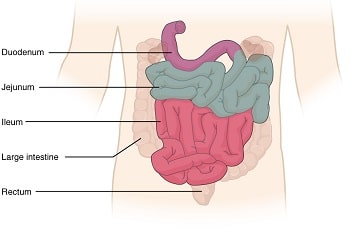
Obsah
Gastroenterológovia dostávajú špecializované školenie v „endoskopii“, čo je prax používania malej a úzkej, no flexibilnej „trubice“ so vstavanou kamerou, ktorá sa bude používať na navigáciu GI traktu počas procedúr, operácií alebo diagnostických testov, aby sa zistilo, či existuje. sú prítomné choroby alebo výrastky.
Pokiaľ ide o zdravotné problémy súvisiace s gastrointestinálnym traktom, vyhľadanie liečby u gastroenterológa vám zaručí najefektívnejšiu možnú liečbu pretože vám bude poskytnutá liečba od profesionálneho lekára, ktorý má jedinečnú a hĺbkovú odbornú prípravu, vďaka ktorej budete dostávať vysokokvalitnú a „komplexnú“ liečebnú starostlivosť pre akékoľvek zdravotné komplikácie súvisiace s GI, s ktorými sa môžete stretnúť.
Štúdiami je štatisticky dokázané, že gastroenterológovia vykonávajú kolonoskopiu a komplexnú starostlivosť o gastrointestinálne problémy s vyššou mierou úspešnosti v porovnaní s liečbou (liečbami) poskytovanou inými typmi lekárov. Pre vás to znamená, že dostanete liečbu, ktorá presne zistí prítomnosť rakoviny alebo polypov, pričom bude mať za následok zníženie pravdepodobnosti vzniku zdravotných komplikácií vyplývajúcich z liečby (pacienti liečení GI môžu tiež očakávať, že strávia menej času nemocnica).
V tomto článku sa budeme venovať „15 najčastejším varovným signálom, ktoré musíte navštíviť gastroenterológa“, ktoré vám pomôžu určiť, či máte príznaky lekárskej komplikácie, ktorá by si vyžadovala pozornosť a liečbu zo strany GI. doktor.
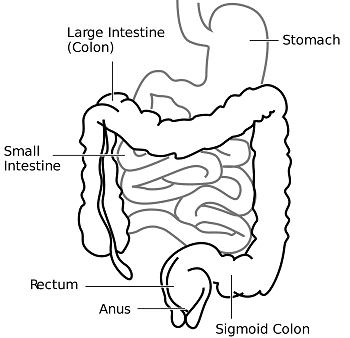
Keď prvýkrát začnete rozpoznávať novovzniknuté „bolesti“ alebo akékoľvek znaky/príznaky pochádzajúce z oblasti tráviaceho traktu, ako je pálenie záhy, bolesť brucha, hnačka alebo zápcha, možno si kladiete otázku, či by ste mali alebo nemali navštíviť bežného lekára. internista alebo gastroenterológ (odborník na trávenie). Koho sa rozhodnete diagnostikovať svoj stav (stavy) na začiatku ich vzniku sa môže líšiť v závislosti od mnohých faktorov.
V niektorých situáciách môže byť správna voľba návštevy lekára alebo gastroenterológa nejasná, ale nižšie vám pomôžeme porozumieť symptómom, aby ste si dali pozor na gastrointestinálne problémy, ktoré by mal diagnostikovať a liečiť lekár GI.
Ak práve teraz po prvýkrát pociťujete symptómy alebo bolesti v oblasti trávenia, potom prvým krokom môže byť vyhľadať radu od svojho primárneho lekára, ako je váš primár alebo internista.
Dúfajme, že to bude lekár, s ktorým ste si časom vybudovali vzťah, pretože by mal úplný prístup k vašej lekárskej a liečebnej anamnéze, ktorú možno skontrolovať, aby ste mohli určiť, čo spôsobuje príznaky, ktoré zažívate.
Keď sa stretnete so svojím lekárom a poskytnete mu svoje symptómy, vykoná sa fyzická skúška, aby sa určilo, či by sa testy mali vykonať alebo nie. Keď lekár dokončí fyzickú prehliadku a má dobrú predstavu o tom, čo vám spôsobuje náhle gastrointestinálne bolesti, môže rozhodnúť, že liečbu musí poskytnúť špecialista, ktorý môže poskytnúť afektívnu zotavovaciu starostlivosť. V tomto prípade by „špecialista“ bol gastroenterológ.
doktor Tarugu, skúsený aocenený gastroenterológ z Južnej Floridy odporúča, aby jedinci, u ktorých sa neustále vyskytujú sporadické alebo opakujúce sa vzplanutia pri predtým diagnostikovaných ochoreniach (ako je ulcerózna kolitída, Crohnova choroba alebo IBS), okamžite vyhľadali liečbu u gastroenterológa, aby predišli ďalšiemu rastu alebo komplikáciám silný> zrelosť.
Počas vašej liečby od gastroenterológa bude informovať vášho lekára o stave vášho stavu (stavov) a pokroku, ktorý sa dosiahol. Tieto aktualizácie pomôžu vášmu lekárovi primárnej starostlivosti dobre porozumieť vášmu stavu, čo mu pomôže poskytnúť vám náležitú starostlivosť v zozname ako podporu po zotavení. Niekoľko ďalších gastrointestinálnych chorôb, ktoré lekári GI liečia, sú choroby, ktoré sa nachádzajú v oblasti pankreasu alebo pečene.
Ak má váš lekár primárnej starostlivosti podozrenie, že sa v týchto oblastiach vyskytujú problémy, je bezpečné predpokladať, že vás pošlú miestnemu gastroenterológovi na hĺbkovú diagnostiku, a tak možno navrhnúť plán liečby.
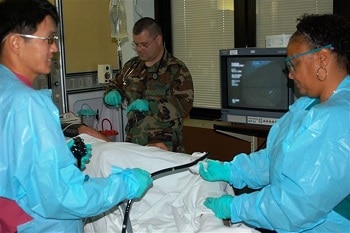
Každý z nich je jedinečným príznakom potenciálne závažných stavov, ktoré by sa nemali považovať za „nedôležité“, pretože každý z vyššie uvedených symptómov by mohol viesť k oveľa horším signálom komplikácií, ak by neboli diagnostikované a liečené „včas“.
Nižšie popíšeme, čo môže každý z týchto symptómov znamenať a prečo je dôležité čo najrýchlejšie vyhľadať radu a liečbu GI lekára.
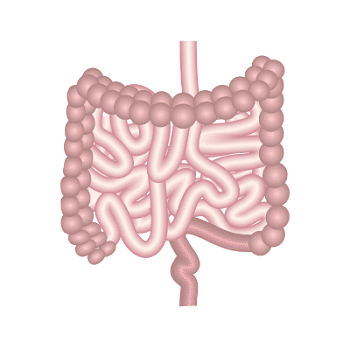
Odhaduje sa, že celkovo 60 miliónov ľudí v USA pociťuje a trpí pálením záhy v priemere aspoň raz za mesiac, pričom sa odhaduje, že 15 miliónov ľudí trpí týmto stavom „denne“. Príznaky poruchy trávenia kyseliny (pálenie záhy) sú najtypickejšie u tehotných žien a starších jedincov.
Existuje stav nazývaný „gastroezofageálny reflux“, čo je telesný stav, ktorý spôsobuje spätný tok žalúdočnej kyseliny a návrat do pažeráka. Z tohto dôvodu budú mať niektorí jednotlivci, žiaľ, skúsenosti s príznakmi, ktoré z toho pramenia, keď sa tento proces uskutoční (ktoré môžu byť denne, týždenne alebo mesačne).
Jeden zprvých príznakov návštevy gastroenterológa kvôli páleniu záhy je zážitok pocitu horúceho nepohodlia vychádzajúceho z oblasti za hrudnou kosťou. Tento pocit má tendenciu prechádzať do oblasti hrdla a krku, takže nepohodlie akéhokoľvek druhu v tejto oblasti by malo byť varovným signálom že musíte navštíviť gastroenterológa na diagnostiku/liečbu.
Ďalším varovným príznakom refluxu kyseliny je „kyslá“ alebo „horká“ chuť v zadnej časti hrdla, pretože ide o chuť žalúdočnej kyseliny. Keďže symptómy pálenia záhy môžu trvať až niekoľko hodín (a zhoršiť sa po jedle), takéto dôsledné vzrušenie v tejto oblasti by vás malo podnietiť k okamžitému vyhľadaniu diagnostického vyšetrenia u GI lekára.
Ak pociťujete takéto príznaky 2 alebo viackrát týždenne, alebo ak pociťujete stratu hmotnosti, stratu krvi alebo lepenie jedla, môžete mať pálenie záhy, ktoré je veľmi vážne. Ak sa takéto príznaky objavia, môžete mať stav známy ako „gastroezofageálna refluxná choroba (alebo „GERD na výstrel).
Predtým, ako začnete chápať presné príčiny GERD alebo gastroezofageálneho refluxu, musíte najprv pochopiť, aké sú príčiny pálenia záhy. Väčšina jedincov pocíti pálenie záhy v prípade, že sa výstelka pažeráka dostane do kontaktu so žalúdočnými tekutinami na predĺženú dobu .
Tieto žalúdočné tekutiny pozostávajú z niekoľkých rôznych materiálov vrátane tráviacich enzýmov a kyselín. Keďže žalúdočná kyselina zostáva v kontakte s výstelkou pažeráka, môže dôjsť k poraneniu pažeráka, čo vedie k nepríjemným pocitom, páleniu a bolesti.
Zatiaľ čo svalová chlopňa smerom k spodnej časti pažeráka (známa ako „dolný pažerákový zvierač“ alebo „LES“) udržuje kyselinu v žalúdku a preč od pažeráka (ak správne funguje), nie je to tak, ak má buď „gastroezofageálna refluxná choroba“ alebo „GERD“, pretože „LES“ má tendenciu pravidelne sa uvoľňovať, čo umožňuje spätnému toku žalúdočnej kyseliny späť do pažeráka.
Takýto symptóm by mal čo najskôr liečiť GI lekár, aby sa zastavil rozvoj ďalších komplikácií.
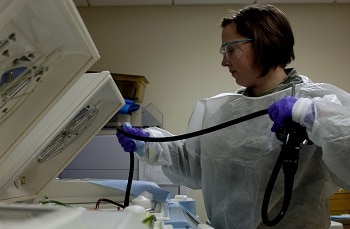
Pri návšteve vášho GI lekára bude na základe diagnostických výsledkov zostavený plán liečby/zotavenia.
Ak zistíte, že sa pri pálení záhy liečite viac ako dvakrát týždenne, je to samo osebe znakom toho, že musíte byť liečení gastroenterológom. Stavy, ktoré skúsený GI nelieči, môžu potenciálne viesť k závažnejšej komplikácii.
Máte problémy s prehĺtaním jedla? Máte ťažkosti pri odstraňovaní tekutín? Pociťujete sporadické alebo trvalé opuchy v oblasti hrdla? Ak áno, môže to byť varovný signál menšieho alebo vážneho stavu, ktorý by vás mal podnietiť vyhľadať gastroenterológa na diagnostiku. "Akýkoľvek typ bolesti alebo nepokoja spôsobeného pitnou vodou môže byť varovným signálom vážneho gastrointestinálneho problému," uviedol Dr. Vikram Tarugu, skúsený, certifikovaný a oceňovaný gastroenterológ.
Ďalšími varovnými signálmi, ktoré si musíte uvedomiť, a ktoré gastroenterológ bude musieť vedieť, sú, či vaše ťažkosti s prehĺtaním sprevádza čkanie, chrapot v hrdle, častý kašeľ alebo pocit plnosti po zjedení veľmi malej porcie jedla. Ak sa vyskytne niektorý z týchto potenciálne nebezpečných varovných signálov, príčinou môže byť rakovina pažeráka. Ak teda pociťujete niektorý z týchto varovných signálov, neváhajte požiadať o radu od svojho primárneho lekára alebo gastroenterológa, ak s ním už máte vzťah. Cítite nezvyčajný zápach z prechádzajúceho plynu? Toto môže byť varovným signálom infekčných parazitov
Prekvapivo, v priemere, typická osoba minie takmer 2 litre plynu denne, pokiaľ sa nevyskytnú abnormality v tráviacom trakte. Jedným z varovných signálov, ktorým je potrebné venovať zvýšenú pozornosť, je, ak pocítite bolesť alebo nepohodlie v oblasti brucha počas plynatosti alebo pri pohybe čriev.
Okrem toho, ak pohyby čriev a plynatosť začali mať nezvyčajne hrozný zápach, môže to byť znakom toho, že máte giardiu, čo je parazit, ktorý dráždi a infikuje črevá. Vzhľadom na to, že giardia sa môže zhoršiť, ak sa nelieči, takýto varovný signál by sa nemal prehliadať.
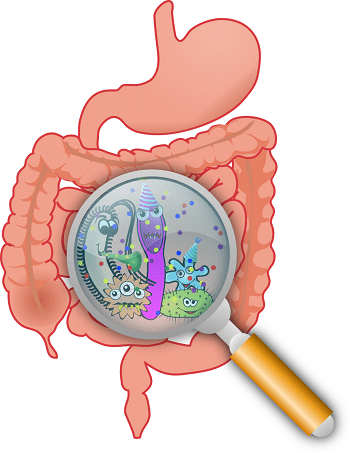
Všetci sme niekedy v živote zažili nadúvanie, ale ak bude pretrvávať, potom existuje možnosť, že existuje základná príčina. Ak ste si všimli, že máte problém si obliecť šortky, keď ste ich ešte pred pár dňami bez problémov nosili, potom za to nemusí to, že ste „vynechali návštevu posilňovne“.
Nadúvanie jednoducho nastáva, keď je náš príjem potravy/vzduchu príliš veľký a naše telo sa ho nezbavuje správne. Ak však nadúvanie náhle začne bez zjavného dôvodu (chvílu ste nejedli) a objavuje sa spolu s bolesťou alebo krvou v stolici, môže to byť varovný signál, že je čas navštíviť gastroenterológa.
Takýto príznak by mohol znamenať, že sa začal rozvoj celiakie, GERD (gastroezofageálny reflux), IBS (syndróm dráždivého čreva), zápchy alebo žlčových kameňov.
V každom prípade, keď spoznáte krv v stolici alebo abnormálne ostré bolesti v oblasti brucha pri plynatosti alebo pohybe čriev, určite musíte byť diagnostikovaní a liečení lekárom GI.
Jedným z varovných signálov, ktoré by mal diagnostikovať lekár GI, je náhla, neočakávaná a nevysvetliteľná strata hmotnosti. Zatiaľ čo náhlu stratu hmotnosti možno pripísať rôznym iným zdravotným problémom, zvyčajne je najlepším miestom, kde hľadať koreň problému, tráviaci systém.
Dr. Tarugu, certifikovaný gastroenterológ na južnej Floride s viac ako 2 100 úspešne ukončenými procedúrami, uviedol, že „prvé problémy, ktoré chcete izolovať ako príčinu náhleho chudnutia, je rakovina žalúdka, pankreasu alebo hrubého čreva“.
Ak teda zaznamenáte náhlu stratu hmotnosti, poraďte sa s gastroenterológom, aby ste si boli istí, že nejde o rakovinu alebo Chronovu/celiakiu (čo by znížilo schopnosť tela absorbovať životne dôležité živiny).

Pri pohybe čriev by pravdepodobne bolo trochu znepokojujúce všimnúť si nejaké červenkasté stopy na toaletnom papieri, pretože všetci vieme, že krvácanie z takejto oblasti nie je normálne. Krvácanie z oblasti konečníka môže byť znakom potenciálne nebezpečného stavu a malo by byť diagnostikované a liečené „okamžite“.
Aj keď je možné, že krvácanie je spôsobené hemoroidmi, ak nie, vyhľadať gastroenterológa bude absolútne nevyhnutné, najmä ak sa krvácanie opakuje a ak sú jedinci starší ako 40 rokov.
Poruchy trávenia (tiež medicínsky označované ako „Dyspepsia“) je termín označujúci stav, ktorý zahŕňa viacero rôznych symptómov, ktoré vznikajú počas jedenia jedla. Niektoré z týchto príznakov môžu okrem „bolesti“ alebo „pocitu pálenia“ v hornej časti brucha zahŕňať aj pocit „napchatého“ po jedle.
Porucha trávenia je pomerne častým stavom medzi dospelými v strednom až vyššom veku a vyskytuje sa mesačne, týždenne alebo dokonca denne.
Ak spozorujete niektorý z nasledujúcich príznakov, potom je pre prevenciu komplikácií nevyhnutné vyhľadať radu a liečbu od GI lekára:
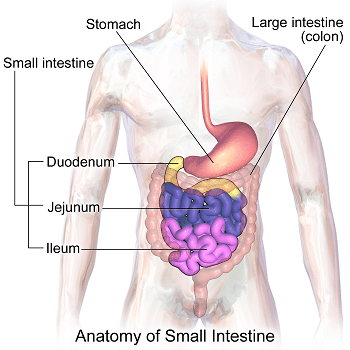
When visiting your GI doctor a treatment/recovery plan will be formulated based upon the diagnostic results.
Possible treatment suggestions may include:
Keep in mind that indigestion and heartburn are two different conditions with each having their own unique symptoms.
However, if you’re experiencing the symptoms of both then it’s possible that you’re suffering from both of the two. Regardless, whether the agitation is minor or severe it’s important that you take such a warning signal seriously and seek treatment from a GI doctor that will help to diagnose and remedy the condition(s).
Nausea is quite an unpleasant experience and can use intense feeling of dizziness, minor to severe discomfort and paint in the abdominal area. On the other hand, often times accompanies by nausea, vomiting is the occurrence of a contraction from the stomach that during times of nausea can help one feel a bit better as the content of stomach is during vomiting is the process in which it’s propelled up thru the esophagus.
Intense and consistent vomiting could possibly be a warning sign of a Gastroenteritis which can be treated by a gastroenterologist. Gastroenteritis is known to be a viral infection that causes inflammation within the digestive tract and can be treated thru the use of medication(s) which will be recommended by the gastroenterologist that you choose to visit.
Are you experiencing a dullish pain in the stomach, weight loss, the undesired to intake food due to pain or nausea/vomiting? If so, this could be a sign of a minor yet serious matter. Such warning signs could possibly mean that you’re suffering from a Peptic Ulcer which can be diagnosed by a gastroenterologist thru the use of an upper GI series or an endoscopy.
If you’re experiencing upper abdominal pains (one of the biggest signs of a stomach ulcer ) be sure that you seek the diagnosis/treatment from a GI doctor so you can have it treated while preventing the possibly of further complications arising from the condition.
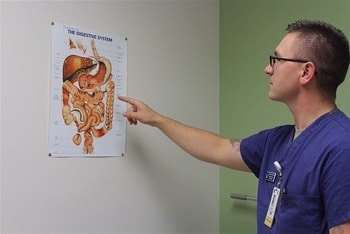
Individuals that may have GI disorders can suffer from warnings signs that are both painless and pain-induced. Such symptoms can be diarrhea/constipation (in some cases, irritable bowel syndrome). Such signs, whether they’re painful or not, could possibly be a sign of a condition other then IBS known as “centrally mediated abdominal pain syndrome” (or “CAPS” for short) which used to be medically referred to as “functional abdominal pain syndrome” (FAPS).
CAPS is a gastrointestinal disorder and is typically caused by a change in the nerve impulse sensitivity and will cause intense and frequent pain in the abdominal section which for some individuals will be quite severe.
In some cases, pain can be so intense and persistent that it’ll affect you in the similar way as the pain from a tooth ache as it can consume your focus/life since it has a tendency to “not go away” for extended periods of time. If such warning signs are present, seek counsel from a gastroenterologist where an antidepressant may be prescribed to not only reduce anxiety caused by the pain but to help alleviate the pain all together.
If you’re experiencing the feelings of belching, bloating or flatulence (build-up of gas in the alimentary canal), these could be warning signs that you you could possibly be suffering from a number of different conditions including allergies to certain foods, lactase deficiency, peptic ulcer disease or a H. Pylori Infection. Each of these we’ll cover below more in-depth so you can determine the possible cause(s) of your symptom(s).
Food Allergies – While not typical, the most severe allergic reaction that one can inherit from the ingestion of food is known as “anaphylaxis” which could possibly be life-threatening. Studies have shown that 90% of all allergies related to foods are caused from the ingestion of soy, wheat, shellfish, tree nuts, fish, peanuts, milk and eggs. If pain tends to arise after consuming such food items then this may be a signal that you need to seek the treatment of a gastroenterologist.
Lactase Deficiency – While lactase deficiency is pretty common with an estimated 3 million cases per year alone within the US, it’s an issue that’s brought upon individuals whose body has difficulty with digesting the sugar contents within dairy products. These issues arise in the digestive tract and can be treated by a GI doctor thru the use of recommended off-the-shelf medication(s) or by a prescribed medication (depending on the severity of your condition.
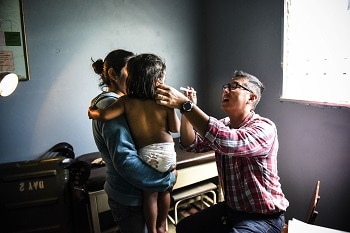
Individuals suffering from “Lactase Deficiency” can expect such warning signs to arise within 30 minutes to 2 hours from the consumption of milk or other food items containing dairy.
While symptoms aren’t always noticeable there are some warning signs that if arise should prompt you to see a gastroenterologist.
If you experience persistent and severe abdominal pain, have difficulty with swallowing or have bloody/black vomit that has the appearance of coffee grounds then seek diagnosis from a GI doctor for treatment as these are all warning signs that need attention before complications arise.
If you experience a yellowing of the eyes/skin then it’s very well possible that this is the warning sign that Jaundice is occurring. Jaundice is a condition in which there’s an excessive amount of bilirubin in the blood which is known, medically, as hyperbilirubinemia.
Bilirubin is a “yellow pigment” substance that affects the color pigmentation in the white of your eyes and your skin tone.
If you’re experiencing such signs of this condition schedule an appointment to see a GI doctor as quickly as possible as if not, further complications could develop which could lead to:
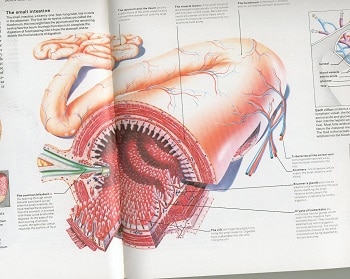
One warning signing of a possibly serious complication that should be diagnosed immediately is pain experienced in the abdominal section with the occurring pain spreading/radiating to your back. Such a feeling is a strong indicator and warning sign of “gallstone pancreatitis ”.
Gallstones are a pretty common cause of pancreatitis and this is caused by gallstones that develop in the gallbladder to block the bile duct which puts a stop to the pancreatic enzymes from being able to travel to your small intestine (which forces them to return to the pancreas).
During this process, these pancreatic enzymes will agitate the pancreas cells which will cause inflammation which can cause a great deal of pain that will radiate from the abdomen to the back. In some cases, this feeling of pain will also be accompanied by a tingling, prickly sensation. If such warning signs arise, seek attention from a physician or preferably a gastroenterologist who will help to diagnose the issue so proper treatment can be prepared/prescribed.
In the event that the gastroenterologist determines that your pancreatitis us due to the gallstones then an ECRP (Endoscopic Retrograde Cholangiopancreatography) will be performed which is a procedure conducted by the GI doctor to remove the stones.
For heavier/obese women it’s important to take cautious note of any pain that stems from the upper right-hand side of the abdominal sections as such a pain could be the indicator of “gallstone pancreatitis” (a prominent condition for heavier-set women). What’s causing such pain is the process of the gallstones blocking the bile duct which causes a chain reaction as this will stop any/all pancreatic enzymes from traveling to the small intestine providing the enzymes with no choice but to return to the pancreas. If the gallstones travel from the gallbladder to the common bile duct, gallstone pancreatitis can develop which is a condition that can continue to worsen and mature in pain while also leading to further complications if not treated.
If you’re medically considered to be “obese” and have had such pain on a regular or consistent basis, consult a GI doctor as treatment in the form of medication and surgeries are available (depending on the severity of the condition). Only making 1-2 bowel movements per week? Difficulty with going? Pain during defecating?
There are a few signs to look out for and notate when looking for signs of possible gastrointestinal complications. A few of these signs include difficulties with making bowel movements, only making 1-2 bowel movements per week or if you experience pain during defecating. Constipation is considered to be present whenever an individual is making only 1-2 bowel movements per week so if this persists this alone could be a warning sign of “anal fissure”. With an estimated 200,000 cases per year within the US alone, anal fissure is a condition that refers to the tearing in the lining of the anus which can cause an immense amount of pain during all three scenarios we referred above (making bowel movements and pain during throwing-up).
Anal fissures develop throughout the specialized tissues that line both the anus and anal canal and this is called the “anoderm”. The reason this can be (and more than likely “will be”) so painful is because of the over-abundance of nerves located within the anal canal. Diagnosis and treatment from a gastroenterologist is recommended. Typically, diagnosis of this condition can be determined by the physical inspection of area with either medication or surgery being recommended to treat (depending on the severity of the anal fissure).
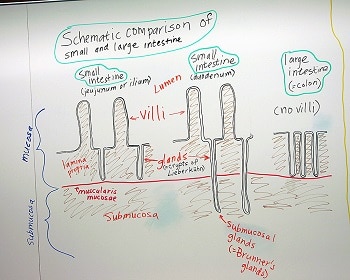
If you’re experiencing symptoms of a condition that includes intense and regular fevers, nausea/vomiting and diarrhea then notate these warning signs to show a gastroenterologist as these are signs of a possibly serious condition known as “bacterial gastroenteritis” which will need to be treated to prevent complications that could arise.
Bacterial gastroenteritis is a condition that develops and occurs whenever bacteria infiltrates your gut can and initiates an infection. If this occurs, inflammation will develop both in your stomach and intestines which will cause discomfort to say the least. Typical symptoms of “bacterial gastroenteritis” includes severe, extreme and persistent cramps in the abdominal area in addition to diarrhea/
While viruses are responsible for the majority of gastrointestinal infections bacterial infections are nearly just as common. A majority of people refer to bacteria-initiated infections as “food poisoning”.
There are a few different causes of “bacterial gastroenteritis” which can be poor hygiene habits, coming in close contact with pets or animals or from consuming foods/fluids that are contaminated with bacteria (even air-borne bacteria). If such warning signs arise, seek medical attention from a physician or preferably a gastroenterologist so the issue(s) can be properly treated to above any further development of bacterial growth.
First and foremost, any sign(s) of rectal bleeding is “not normal” and should never, in any scenario, be dismissed as a minor or non-severe matter as it’s a serious occurrence that requires the attention and treatment from a gastroenterologist.
One of the most prominent signs and symptoms of “irritable bowel syndrome” (IBS) is rectal bleeding and the presence of blood in the stool. In some circumstances, a warning sign is not making a bowel movement at all or only 1-2 times per week.
Blood expressed from the body caused IBD will appear to be “bright red” while if blood is originating from the upper area of the digestive tract the blood will be darker (dark/black stools). If such a sign has arisen be sure that you notate the darkness of the blood so you can provide this detail to a gastroenterologist who will use this information as a part of the diagnosis and treatment(s). In any case, if bleeding from the rectum is “severe” or if you’re throwing-up blood than this is a sign of a severe condition occurring which needs medical attention “immediately”.
Furthermore, such signs could also be a warning sign that you’re suffering from either “Crohn’s disease” or “ulcerative colitis” which are also conditions that you’ll want to have inspected by a GI doctor. Chron’s disease is a condition affecting 200,000 individuals per year and is a chronic, inflammatory irritable bowel disease that runs alone the digestive tract lining.
Ulcerative colitis is another chronic disease that inflames the bowel area which results in the digestive tract becoming inflamed. If any of the warning signs above are occurring, seek medical attention. You don’t want to take the chance of such conditions maturing in growth/size as not only could further complications arise but you may have to undergo additional treatments which otherwise could’ve been avoided had you have the condition(s) treated early on.
Experience vague or minor abdominal pain with a change in bowel movements last for 3+ months? Any changes in your normal bowel movement habits that are lasting for 3+ months is a sign that your body is changing, or, is changing due to an irregular occurrence/condition that should be looked at by a GI doctor; especially when you’re experiencing changes in bowel movement that are lasting for an extended period of time.
Irritable Bowel Syndrome (IBS) is a condition that can spark a significant amount of pain to its victims and will initiate a discomforting agitation feeling in the abdominal area. There are some very common symptoms of having IBS which include constipation, gas and diarrhea (in addition to a pain-induced belly). Having your IBS diagnosed for the severity will help you to have a planned pain-management regiment that will be created for you by the gastroenterologist.
When your stomach is experiencing pain it’s caused from the constipation or the diarrhea although is the painful feeling(s) diminish upon making a bowel movements then more than likely, your symptom(s) are an indicator of your pain being tied to a condition other than IBS (consult a GI doctor for diagnosis). This pain is initiated by contractions which can and will cause intolerable pain that will consume your life, make it difficult to rest and will make it difficult to focus on aspects of life (work for example).
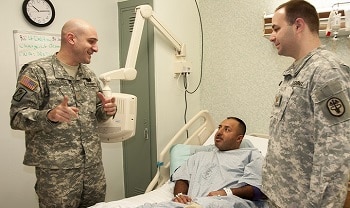
When it comes to your health it’s never a smart idea to over-look symptoms of possible health-related complications and rectal pain, bleeding from the rectum or the presence of blood in your stool are warning signs of a possibly serious complication. If you’re experiencing any of these signs, there’s a possibility that you body is suffering from one or more conditions that include it hemorrhoids, anal fissure, or anorectal cancer (although this is rare).
Hemorrhoids is a condition that should be treated by a GI doctor as Hemorrhoids is a medical condition that means the veins in the rectum and anus have become “swollen” which can cause the veins to bulge which will then result in severe agitation especially during bowel movements. Swollen hemorrhoids may be referred to by your gastroenterologist as “piles” as this is a commonly used medical term for this particular condition.
Hemorrhoids , depending on the severity of you case(if it’s determined by the GI doctor that you in-fact have it), you may undergo an operational procedure where the gastroenterologist will make use of specially designed medical equipment (not that intrusive) to “shrink” and “remove” the hemorrhoids which could actually be done on-site at the GI doctor’s office. Another treatment option is the GI doctor administering an injection in to the hemorrhoid with a specially formulated solution that will result in scarring the hemorrhoid to close it off.
Anal fissure is another condition that could be occurring if bleeding from the rectum is prevalent as this condition is the occurrence of “tearing” in the anus lining which will cause blood to originate out of the rectum which can be noticeable by looking at the stool (is blood noticeable?).
Finally, bleeding from the rectum can “possibly” be a sign of “anorectal cancer ” although this is quite uncommon and not the typical cause of bleeding from the rectal region. “Anorectal cancer” is a malignant infested disease that forms within the tissues and glands of the anus. If you’re suffering with HPV (human papillomaviurs) will increase the chances of “rectum cancer development” so it’s vitally important that you seek diagnosis is warning signs such as rectal bleeding occur.
For elderly/older women, experiencing a bulge or in the rectal area (comparable to a stomach bulge) is a serious sign of either “rectal prolapse” or “vaginal prolapse”; serious yet treatable conditions that can be cured by a gastroenterologist thru the practice of medication(s) or procedural operations.
In the United States it’s estimated that 10% of all elderly women suffer from rectal prolapse with signs ranging from rectal bleeding to the feeling of a “bulge” in the rectal region (noticeable to the touch). Rectal prolapse, specifically, is a condition in which the parts of the large intestine will protrude out of the anus and will cause quite a bit of discomfort, pain, difficulty with making a bowel movement and rectal bleeding.
If such signs occer, don’t procrasitance on receiving treatment. Consult with a GI doctors so treatment preparation(s) can be facilitated.
Vaginal prolapse is another condition that rectal bleeding can be a warning sign of. Vaginal prolapse is a serious condition where the bladder, rectum, urethra, small bowel or uterus will begin to fall out place.
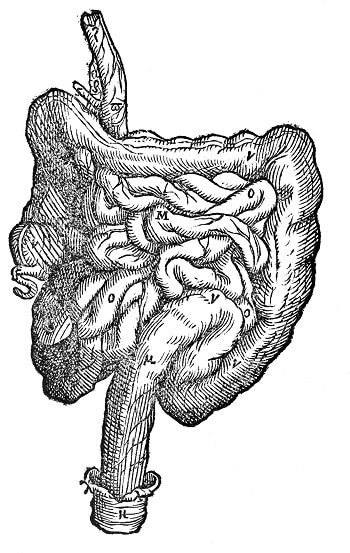
If any of these warning signs occur, it’s time to visit a gastroenterologist so you can receive an accurate diagnosis and treatment.
When it comes to your overall health, maintaining your normal body functions and avoiding complications a gastroenterologist can is a great go-to medical professional as you’ll be able to take advantage of the specialized training that the GI doctors has received so you can alleviate yourself of medical complications.
If any of this signs on this list has occurred, don’t hesitate to seek the intervention of a GI doctor. It’s paramount to ensuring the longevity of your health and will provide you with the peace-of-mind knowing that your symptoms are being affectively diagnosed and of course, treated.
We hope you found this guide helpful. Your gastrointestinal health is important to us and it’s our sincere mission to provide useful medical advice and suggestions.
 Prečo hippies vonia ako pačuli?
Prečo hippies vonia ako pačuli? Pačuliový olej má surovú, zemitú vôňu. Olej z pačuli sa používa už tisíce rokov, no obrovskú popularitu si získal vďaka tomu, že ho v 60. rokoch používali hippies.
Prečo hippies vonia ako pačuli?
Prečo hippies vonia ako pačuli? Pačuliový olej má surovú, zemitú vôňu. Olej z pačuli sa používa už tisíce rokov, no obrovskú popularitu si získal vďaka tomu, že ho v 60. rokoch používali hippies.
 Čo udržuje váš tráviaci systém zdravý
Zhoršený žalúdok môže celý váš deň slučka. Či už máte pálenie záhy, plynatosť, zápchu alebo nadúvanie, je to nepríjemný pocit. Dobrý zdravý žalúdok znamená, že budete mať menej zápalov a problémov s i
Čo udržuje váš tráviaci systém zdravý
Zhoršený žalúdok môže celý váš deň slučka. Či už máte pálenie záhy, plynatosť, zápchu alebo nadúvanie, je to nepríjemný pocit. Dobrý zdravý žalúdok znamená, že budete mať menej zápalov a problémov s i
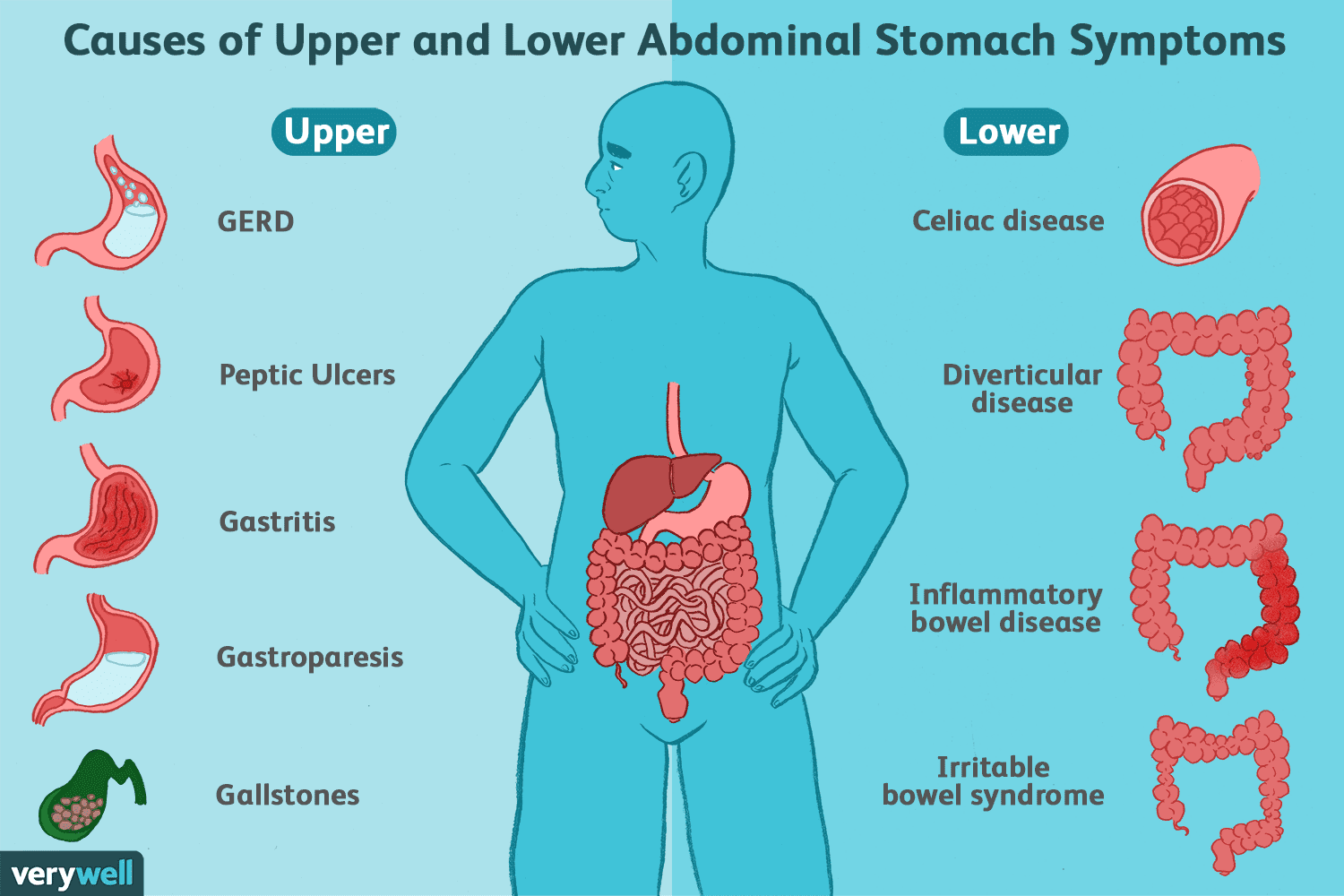 Črevné choroby a poruchy (ktoré nie sú IBD)
Je ľahké priradiť príznaky trávenia k zápalu čriev (IBD), keď sa dozviete, že ide o všeobecný názov pre poruchy súvisiace s chronickým zápalom tráviaceho traktu . Ale IBD je špecifické pre Crohnovu ch
Črevné choroby a poruchy (ktoré nie sú IBD)
Je ľahké priradiť príznaky trávenia k zápalu čriev (IBD), keď sa dozviete, že ide o všeobecný názov pre poruchy súvisiace s chronickým zápalom tráviaceho traktu . Ale IBD je špecifické pre Crohnovu ch